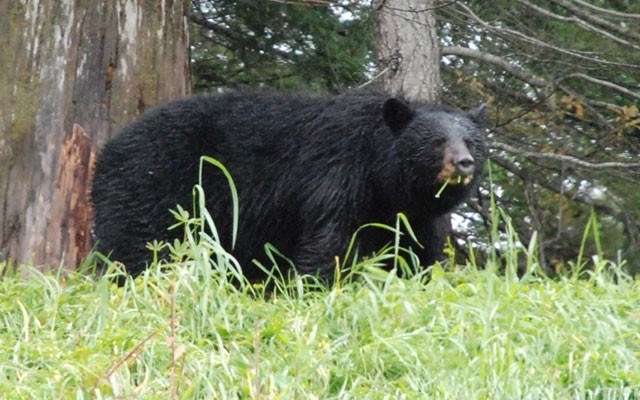The head of Whistler's Get Bear Smart Society expects bears to wake from hibernation earlier than usual this year with warm weather continuing in the valley.
"We've never experienced anything like this before," said Sylvia Dolson of the above-average February temperatures.
While neither BearSmart or the Conservation Officer Service (COS) have received any confirmed reports of bear activity in Whistler so far this season, Dolson said bears hibernating in the valley are likely to sense the spring-like temperatures and go out searching for food, which would create "extremely high" potential for conflict.
"Of course there's no natural food available, so then (bears) resort to human food sources — garbage, recycling, bird seed, barbecue grease, all that stuff," she added.
Both Dolson and Sgt. Peter Businck said it's difficult to predict when bears may become active again in Whistler. Reports of bears emerging from their dens have already surfaced around Squamish, the North Shore and Coquitlam over the last month, according to WildSafeBC, as well as in other mountain resorts, like Banff, Alta.
The unseasonable weather is a chance to remind resort residents to keep their garbage and barbecues secured year-round and to remove bird seed from feeders. More safe bear-management practices can be viewed at www.bearsmart.com.
This year BearSmart will be conducting a review of effective bear management methods in other communities to see what can be applied to Whistler after 11 bears were killed as a result of conflict in 2014.
Dolson has put in a funding proposal to review scientific literature from the past 20 years around human-bear conflict, and also has plans to carry out a phone survey of BearSmart coordinators in other communities.
"We're really going to take a step back, evaluate everything and look at the big picture again to see what we need to do, and we haven't done that yet," said Dolson, who also wants to explore the potential for enhancing bear habitat in Whistler.
"I want to look into re-establishing or enhancing habitat where bears can feed out of conflict from people, so whether that's in the valley bottom away from residential, commercial and recreational (areas), or a little bit at elevation somewhere where we can establish some good berry production," she said.
BearSmart reported that 252 bears have been killed in Whistler since 1990 as a result of human-caused conflict. There are currently around 50 bears living in the Whistler area.




